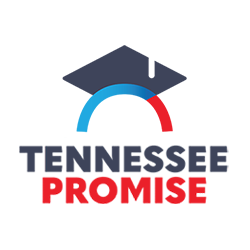What to Expect When You Transition to College
 The Access Center (AS) office at Volunteer State Community College (VSCC) offers resources to all students with disabilities, whether you've recently graduated from high school or you’ve been out of high school for several years. However, if you’re a recent high school graduate you may be confused by the changes with which you’re faced and unsure what to expect as you prepare for college. Realistically, the transition from high school to college requires a period of adjustment for all students since the academic demands are different in the two environments. However, the transition for students with disabilities requires special preparation in order to progress smoothly.
The Access Center (AS) office at Volunteer State Community College (VSCC) offers resources to all students with disabilities, whether you've recently graduated from high school or you’ve been out of high school for several years. However, if you’re a recent high school graduate you may be confused by the changes with which you’re faced and unsure what to expect as you prepare for college. Realistically, the transition from high school to college requires a period of adjustment for all students since the academic demands are different in the two environments. However, the transition for students with disabilities requires special preparation in order to progress smoothly.
During the high school years, much of the responsibility for accommodating your disability fell to school personnel and your parents served as your primary advocates. Even though you were required to participate in case conferences and the implementation of your Individual Education Plan (IEP) you may have felt more on the "sidelines." In college, your parents no longer serve as your primary advocates and you’re asked to assume this role. It's important you understand that in college you'll be expected to:
- seek out needed services
- provide adequate documentation of your disability
- self-identify your accommodation needs
- follow-through with your responsibilities in the accommodation process
Some of the confusion surrounding the transition from high school to college for students with disabilities can be traced to the fact that colleges and high schools are governed by different laws. The Individuals with Disabilities Education Act (IDEA) no longer applies as you transition to college and an IEP, mandated by IDEA, will no longer be used once you become a college student. Even Section 504 of the Rehabilitation Act of 1973 (Section 504) has different provisions for colleges than are in place for K-12 schools.
By law, K-12 schools:
- Provide assessments to identify students with disabilities
- Guarantee all students receive a Fair and Appropriate Public Education (FAPE)
- Develop Individual Education Plans (IEP's) for providing accommodations to students with disabilities
- May modify or waive course content as deemed necessary to guarantee student success
- May provide any accommodation available to guarantee student success, including for personal use or study
By law, colleges:
- May require students with disabilities to provide adequate "evidence of need" for specific accommodations
- Guarantee all eligible students have the opportunity to attend college, if they are accepted and have the means
- Provide only reasonable, appropriate accommodations needed to guarantee access to activities, programs and services
- Are not required to fundamentally alter the essential academic requirements of a course or field of study
- Are not required to provide accommodations for personal use or study, such as tutors or personal aids
The services offered through the AC office are designed to assist all students with disabilities in navigating the accommodation process and learning self-advocacy skills for the college environment. If you will be seeking accommodations in your VSCC classes, you are asked to register with the AC, ideally as soon as you’re accepted to the College.



